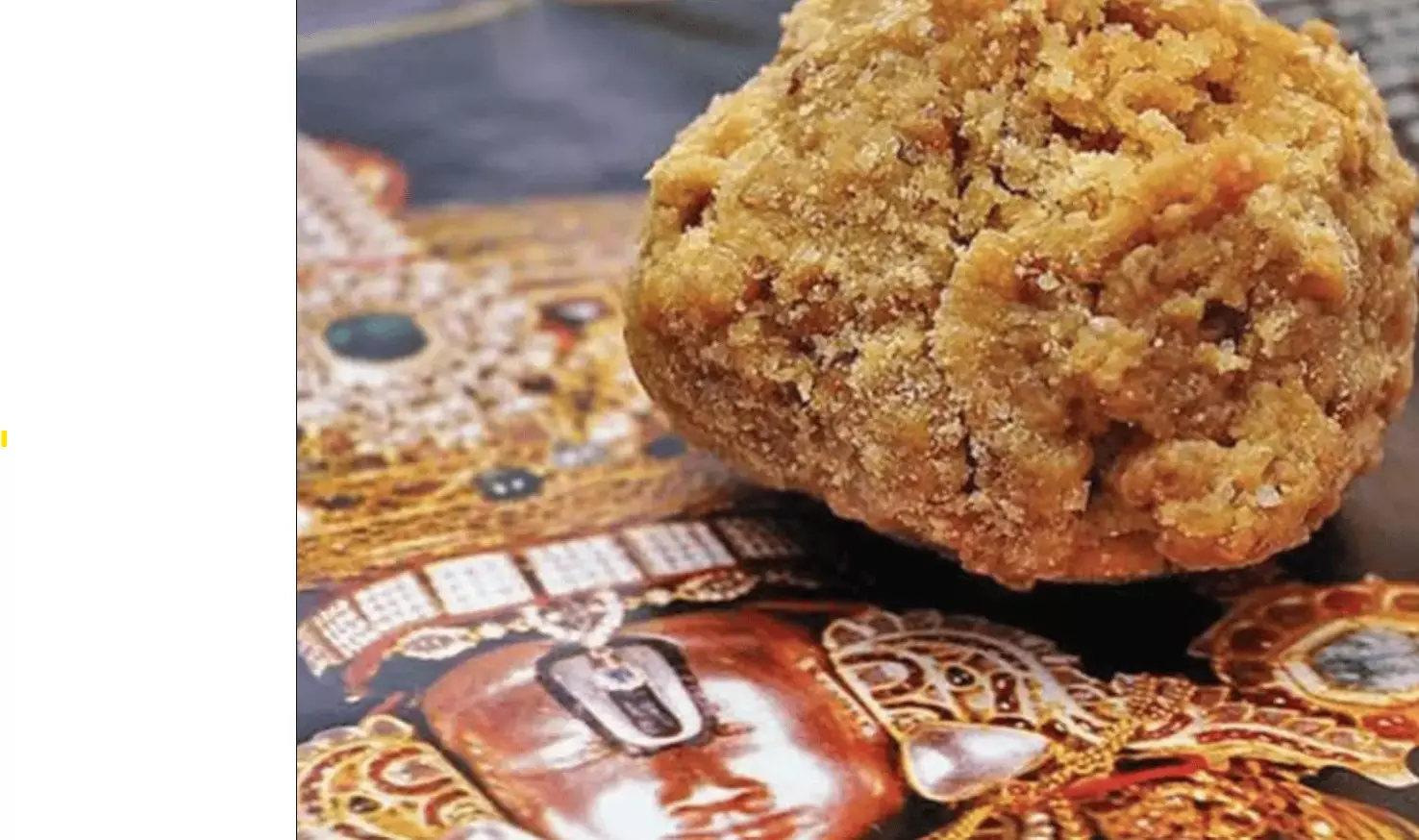A ‘bitter’ sweet

The sweet laddus of Tirupati have become a source of bitter debate in Andhra Pradesh, with the controversy now spreading to other parts of the country as well. Although the allegations are not supported by concrete evidence, the issue has triggered intense debates—primarily political, but fuelled by religious sentiments. The controversy erupted after Andhra Pradesh Chief Minister N Chandrababu Naidu, who assumed office in June this year, made a bombshell claim that laboratory tests had revealed contamination in the laddus offered at the renowned Tirupati temple. The ghee used in the sweets had allegedly been adulterated with animal fats, including beef tallow and fish oil. This is alarming, considering that temple offerings in India are strictly vegetarian.
Some assert that the controversy has not emerged out of the blue. In the first month of its term itself, the TDP government had already ordered an inquiry into the alleged poor quality, taste, and texture of the laddus. Notably, there has been a significant time lapse between the findings of the report and the Chief Minister’s claims. The row comes just as two prominent states—Maharashtra and Haryana—are gearing up for assembly elections. The TDP is one of the key allies of the ruling NDA government, holding it together or preventing it from fracturing. Apart from Bihar, Andhra Pradesh was one of the states to receive significant budgetary allocations this year. Analysts believe that now is the time for the TDP to ‘repay’ this support. Incidentally, Naidu’s allegations against the former YSRCP government are resonating deeply within the BJP camp and right-wing groups.
While Naidu and his alliance partners are leaving no stone unturned in tainting the image and credibility of YSRCP chief Jagan Mohan Reddy, Reddy has fiercely denied the allegations, accusing Naidu of playing politics and tarnishing the temple’s reputation. Reddy's supporters have even launched religious rituals to ‘atone’ for what they see as Naidu’s sin of defiling the sanctity of the laddus. As a matter of fact, according to the investigation, the foreign fats found in the laddus range from soybean, olive, sunflower, rapeseed, and cottonseed oils, to fish oil, palm oil, beef tallow, and lard—making the findings rather ambiguous in terms of non-vegetarianism.
It is disheartening to note that a public office holder of such high stature could plunge his own state into turmoil, ostensibly for political gain. The issue at hand is highly sensitive and pertains to the faith and emotions of the people. Any sort of opportunism from any quarter is highly unwarranted. The situation needs to be handled with utmost care and responsibility. Political parties should refrain from manipulating public sentiment on issues as delicate as faith and religion. Adding insult to injury are the disproportionate demands raised by certain right-wing groups, who are now pressuring the government to free all temples from state control. It is clear that a simple case of food adulteration is being inflated to push forward a right-wing agenda. A fair and just investigation into the food adulteration case is imperative to ascertain any malicious intent or action. At the same time, public officeholders are expected to exercise sensible restraint, ensuring they do not continuously trespass into matters of religion and faith.



